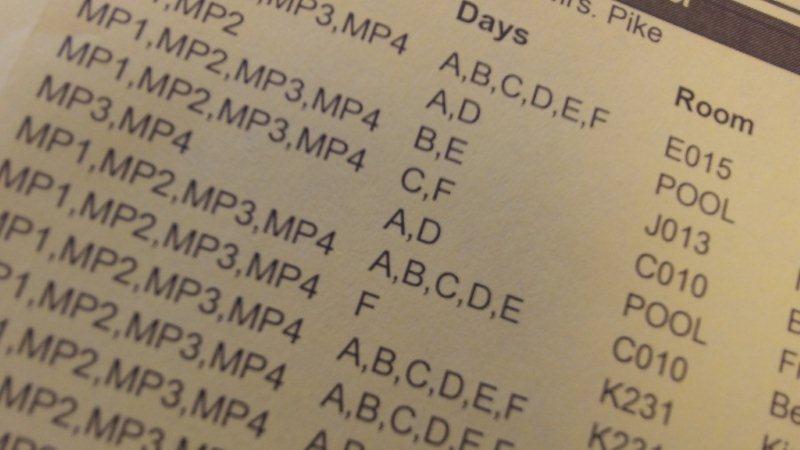5:30 AM MONDAY MORNING – The incessant wailing of your alarm you have been dreading all night impels you to wake up. Once you turn off the hated sound, all is quiet; Lansdale is still asleep. Your only company is the birds. There’s a cool chill in the air from the absence of the sun, and you dread leaving the warmth of your bed. All you want to do is roll over and go back to sleep – Oh wait, you can.
“Every year students come to me trying to manipulate 8th period study times.” States North Penn principle Burton T. Hynes, “I know people have jobs and sports… so I thought how can I make it work for them and us? This year we are trying something new.”
As an incentive for seniors with a PSSA score of at least proficient, late arrival and early release are available. This means students can opt out of having a first period and/or eighth period in their schedule. Basically class instruction time out of a seven hour school day is cut down by nearly an hour. The only requirement is students who apply have to go into senior year with at least eighteen credits.
Even as a seemingly great incentive for hard work, there still exist several conflicts.
North Penn surpasses in areas other schools fail: we offer a wide variety of courses in which students can explore their own interests and excel in their own talents. Music, art, broadcasting, technology – North Penn’s electives are seemingly endless, touching on all horizons, allowing students to specialize in a major and lead them towards a career path fitting for them.
But how can a student take electives if he or she is not there?
The new Late Arrival/Early Release policy cuts down on students’ education time, ultimately impeding on their availability to develop their interests within the school day. A North Penn schedule looks like this: there are six days in a cycle in which each of those days includes eight periods (not including ninth period on Wednesdays and Thursdays). That means a student is able to fill at least thirty-eight of those forty-two periods with the required courses (Math or Science, English, Social Studies, Lunch, and Gym) and their electives. If a student is limiting him or herself to only five periods a day by removing first, seventh, and eighth period from his/her schedule (a student with early release can leave seventh period if the period is a lunch), there is no room for any electives.
“Yes, it’s taking away from elective courses,” admits Mr. Hynes, “but it’s the students who chose. Students self select [their courses].”
This new schedule change allows a student to still graduate, but does it provide the student with enough education to reach his/her highest potential? This new policy encourages students to stay home rather than strive for more credits and education. Even AP college credits are offered at the high school level, but of course heading home an hour early sounds way more appealing than an hour more of instruction accompanied by the intensive schoolwork.
Most importantly, especially as a senior prepping him/herself for life after high school, what do colleges think of a student cutting down instruction time on their own terms?
Certain universities have certain requirements unique to that school, but one general rule is universal: they want to see the students challenge themselves and succeed. Arriving to school late and leaving early does not give off the impression of a student engaged in their academics with willingness to learn, and strive to reach their highest potential.


Michelle Zeng • Sep 19, 2012 at 7:50 pm
I completely agree! Nice job Carly!